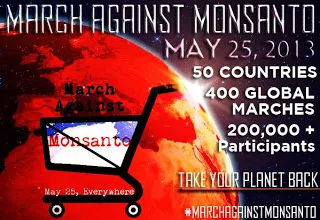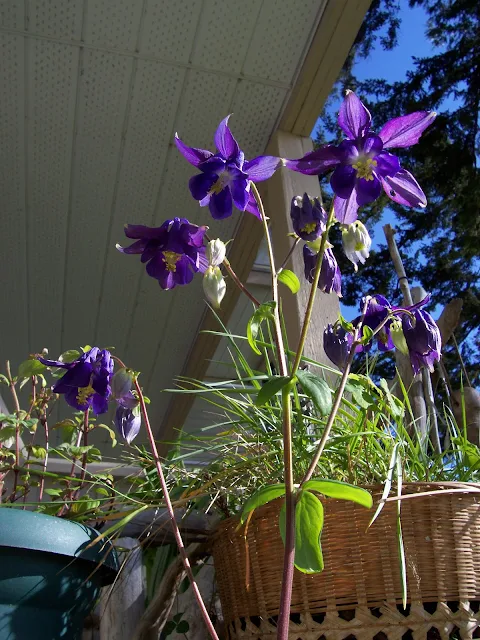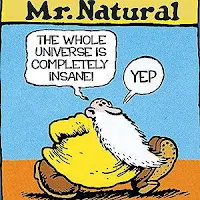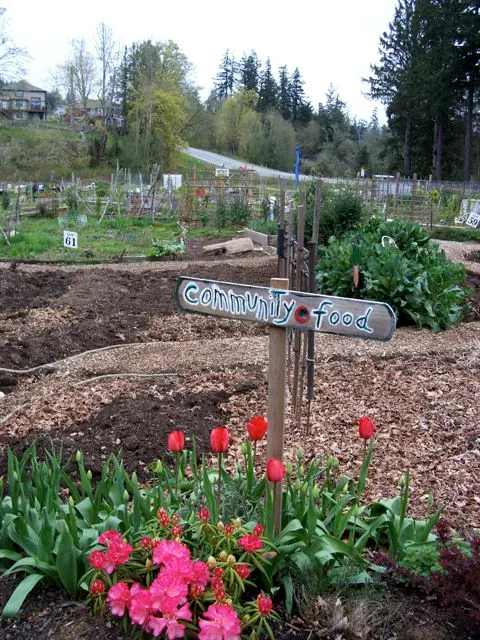"I'm Alive. I'm Alert. I feel great."
I am fortunate to experience this sensation most days when I wake up. I swing my legs out of bed and think to myself, "Today is going to be a great day".
My mom swears that I was born a quiet and contented little dude. She called me her "Buddha Baby" and says that from day one I have never been demanding. I have been looking for the middle path ever since.
Much has been said about moderation over the eons. The saying "Enough is as good as a feast" is one example. I fear it is too modest. Just enough is better than a feast. Just the right amount, in any situation, is always better than too much, or too little.
We experience diminishing returns the farther past 'enough' we go, until soon we are harming ourselves and our surroundings. Luxury, for example, is an extreme practice that flips the middle finger at enough and gorges its way right past moderation on its way to throw up all over logic and decency.
In industrialized nations the gorging has increased dramatically over the past few decades. However, the level of happiness reported by the citizens of theses nations has remained stubbornly mired at the level just before the unfettered feasting began post WWII.
We are all born content. What else does a mini-human want except some milk, a clean bottom, some swaddling to keep warm and cozy, and someone to love them. Simple, and it is the way we all began.
Then we are trained to want, desire, acquire, grab and buy our way to success and happiness. And if we get there we may find that it is a hollow victory. In spite of being all-of-that, there is still something missing.
It is an endless pursuit. Cars, BBQs, houses, vacations, big screen TVs, electronic gadgets, fashionable clothes, best selling books, restaurant food... the list goes on and on and on. How does one ever feel content when the finish line is constantly being moved further away?
How To Be Content
- Don't compare yourself to others. It doesn't matter what other people have, or where they go, or what they do.
- Know that you aren't as needy as you have been trained to feel. You don't need as much to be happy as people tell you.
- Celebrate the little things because they aren't really little. To me a huge shoe collection is a little thing that would add nothing to my life. Clean water on the other hand, is priceless.
- Know that you are probably better off than most of humanity. If you have a secure warm, dry place to sleep, nutritious food to eat, adequate clothing, access to education, and supportive friends and family, you have more than most people alive today.
- Think about the things you have that give you pleasure, rather than the things you don't have that you think will give you pleasure. You probably have more stuff than you realize, and it may be more than you really need. Why add more to the pile?
- Take the personal challenge to find out what "just enough" means in your life. It can be a fun challenge to see how efficiently one can live life with an optimal amount of material support. Not 100 items, and not 100, 000, but somewhere in between.
- Be careful what you wish for. Often what we think we want is not what is best for us. Do we really want it, or was the desire planted there by those wishing to profit from manufactured desires?
- Be grateful for everything you have. Practice giving thanks for everything you have. I give thanks for: water, love, food, clean water, hot water, soap, socks, peace, security, good neighbours, sleeping in, flowers, a garden, beauty, clean underwear, a lack of pain... my list is endless. Oh, thanks for reading this.
- Keep on going. Once you experience the initial liberating feeling of not wanting all the time, you may find you need less money to support your diminished desires. Less money means less work, and less work means more time to do the things that matter the most to you.



























